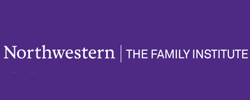MFT Degrees, Schools, and Careers in Connecticut
Despite being one of the smallest states in the nation in terms of geographical size, Connecticut has a plethora of well-known and renowned training programs within Marriage and Family Therapy (MFT). The Commission on Accreditation of Marriage and Family Therapy Education (COAMFTE), a regulatory body that serves to monitor quality of the MFT programs across the nation, indicates that 6 programs, 5 master’s-level and 1 doctoral, have obtained current COAMFTE accreditation. Having this stamp of approval from COAMFTE means that these programs meet a specific standard within their training structure, and that students that graduate from this program will meet minimum licensure requirements as outlined by the Connecticut Department of Public Health.
However, attending a COAMFTE-accredited institution is not the only option for those seeking to become a LMFT in Connecticut; the rules and regulations of the state licensing board indicate that individuals that have graduated from a program that meets minimum program educational requirements as detailed here and have completed clinical requirements can also apply for licensure. In addition to completion of an academic program, all students are required by the Department of Public Health to complete at least 1-year of post-doctoral clinical experience (i.e., 1,000 hours) prior to obtaining licensure.
MFT Degree Programs in Connecticut
As noted, there are currently 6 programs within 5 institutions that are accredited by COAMFTE, and thus are guaranteed to meet program requirements for licensure within Connecticut. Central Connecticut State University (CCSU) in New Britain, Connecticut offers a Master’s of Science in Marriage and Family Therapy. The academic program is comprised of 51-credit hours, as well as three clinical experiences at one of the 60 approved clinical agencies in the local community. Students at Central Connecticut State have the option to take classes on a full- or part-time basis, and can choose to take classes in the evenings or weekends for maximum flexibility. Those who are interested in pursuing a career specifically within a school setting can choose to pursue the specialty School Counseling Track within the MS MFT program. Across all tracks, students are required to complete a “Capstone Project” to graduate wherein they present a family or couples case that they saw during their internship year to members of the faculty. Moreover, students can elect to complete a master’s thesis project, which allows them to engage in scholarly pursuits while simultaneously immersing themselves in clinical duties.
The Master of Arts in Marriage and Family Therapy through Fairfield University possesses several similarities to the program at CCSU Program. Completion of the MA in MFT from Fairfield entails completion of 57 credit hours, 500 face-to-face clinical hours and 100 hours of supervision, and successful passing of comprehensive exams. Enrollment in the program can be completed on a full- or part-time basis for those that need more flexibility. Those that are interested in pursuing a career in a school-based setting can elect to complete an additional School-Based MFT Certificate through Fairfield in addition to their MFT generalized studies. Students have their first practicum experiences through the university-based Koslow Center for Marriage and Family Therapy. Additional clinical experiences are available through community-based mental health service providers.
Located in New Haven, Connecticut, Southern Connecticut State University (SCSU) offers a Master’s Program in Marriage and Family Therapy that students can choose to complete on a full-time (2 years total) or part-time (3 years total) basis. Similar to the programs listed above, the program requires both a sequence of coursework to provide students with the theoretical knowledge of MFT practice as well as hands-on clinical experience through providing therapy services to couples, families, and individuals through SCSU’s Family Therapy Clinic and other local mental health agencies. The hour requirements for this program are 60 academic credit hours, 500 face-to-face clinical hours, and 100 hours of supervision, all of which are very similar to other existing programs in the state.
Finally, the University of St. Joseph in West Hartford, Connecticut offers the final master’s-level program accredited by COAMFTE in MFT. The program is well-suited to adults that are currently working full-time and are not able to take time off to begin their graduate study. All classes are held in the evenings, so that those enrolled in the program do not have to give up their day jobs. Due to the nature of the program, generally students take a bit longer to complete their requirements; the website for USJ indicates that the minimum length of the program is 3 years and the maximum time until the degree is awarded is 7 years.
Online MFT Degrees in Connecticut
As is the case in the majority of the United States, there are few options for those individuals seeking to complete an online degree in MFT. Considering the licensing requirements of the state, nationally-based online degree programs are an option for those that wish to complete their degrees online. However, it is recommended that people interested in this option first verify that the online institution is either accredited by COAMFTE or meets program minimum requirements as outlined by the licensing board of Connecticut.
There are five schools that offer online accredited MFT degree programs. Not all five programs are accredited by the same governing body however. Capella University is accredited by the COAMFTE, as is Northcentral University, which also offers a online PhD in the subject. Messiah College in Pennsylvania, Regent University in Virginia and Walden University in Minnesota all offer accredited MFT degree programs, only those programs are accredited by CACREP. States like Connecticut may accept accredited programs from both bodies as acceptable for licensure requirements, but it is important to be sure that the program is designed to prepare students for licensure nonetheless.
Learn more about an MFT degree online.
Career Opportunities for MFTs in Connecticut
Nationally, trends in job growth indicate that the number of jobs available for LMFTs will increase over the next decade around 14%; this growth represents a large increase that bodes well for recent graduates of MFT programs. Within Connecticut, government data from May of 2022 reveals that MFTs in Connecticut made a mean annual salary of $68,010. However, the salary that an MFT receives will depend on the setting in which they work. MFTs can work in a variety of settings, including private practice, hospital settings, universities, schools, residential care facilities, and government organizations, with a range of different populations, including couples, families, the youth, the elderly, and veterans, among others. See the MFT licensure requirements in CT.
2022 US Bureau of Labor Statistics job market trends and salary figures for marriage and family therapists are based on national data, not school-specific information. Conditions in your area may vary. Data accessed August 2023.
Marriage and Family Therapists Salary in Connecticut
| Location | 10% | 25% | Median | 75% | 90% |
|---|---|---|---|---|---|
| United States | $33,140 | $39,130 | $51,340 | $68,020 | $92,930 |
| Connecticut | $37,120 | $42,760 | $48,050 | $56,780 | $71,660 |
| Bridgeport-Stamford-Norwalk, CT | $32,310 | $34,750 | $38,830 | $58,220 | $112,880 |
| Hartford-West Hartford-East Hartford, CT | $33,530 | $37,470 | $44,150 | $56,390 | $73,590 |
| New Haven, CT | $40,020 | $44,910 | $52,560 | $63,750 | $74,320 |
| Norwich-New London, CT-RI | $41,350 | $44,340 | $49,270 | $76,800 | $89,770 |
Table data taken from 2020 BLS (http://www.bls.gov/oes/current/oes211013.htm)





















































